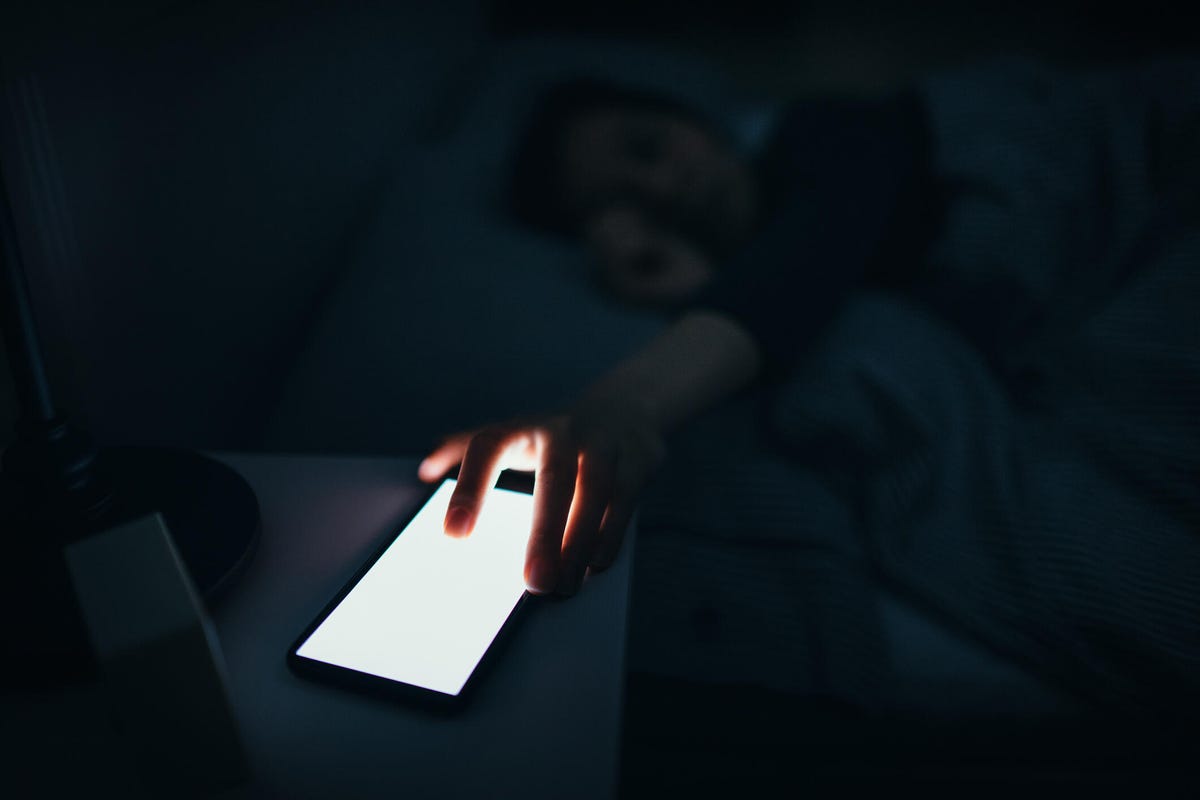Tips on how to get to sleep how to get rid of sleep how to get the most out getting the most out of your employees tips for the first time 8 tips for eating well food a fact of life tips for getting started 8 tips for relaxation 8 tips for eating well

8 Tips for Getting the Most Out of Your Sleep
Theoretically, sleep should come easy. You lie down, close your eyes and lie still until you nod off to sleep. Simple, right?
Unfortunately, almost everyone knows that's not true. Whether you had a coffee too late in the day or you just can't seem to quiet your mind, sleep can be elusive. In fact, roughly 70 million Americans have a hard time getting a good night's rest.
Fortunately, you don't have to go to bed empty-handed. With these eight sleep tips, you can set yourself up for success when you turn out the lights — no sheep needed.

You've probably heard some of these sleep tips before. That said, we're including even well-known suggestions because research (and experience) shows that they work.
Stick to a strict sleep schedule
Your body has a built-in sleep-wake cycle. It's supposed to regulate your sleep and wake times, and is stimulated by clues like light or time of day. Meet: your circadian rhythm.
If you struggle with sleep, this is a good bet for better rest. The trick is that in order for your circadian rhythm to work, you actually need to get into a rhythm. That means going to bed and getting up at the same time every day (yes, even on weekends).
Limit your naps
In a similar vein, naps can throw off your body's internal sleep processes, especially if they're lengthy.
Experts say to aim for a nap of somewhere between 10 and 20 minutes. Not only does this limit the grogginess you'll feel upon waking up, but it also prevents you from feeling too rested when you hit the pillow that night.
Wear the right clothes to bed
Feeling constricted or sweaty isn't going to do your night any favors. Opt for loose, breathable fabric — hint: cotton wins here — when you're picking pajamas. Or, if you're up for it, science says it might be best to skip the clothes altogether if you aren't a sweaty sleeper.
Set the room temperature low
When it comes to rest, cooler is better. Several studies suggest adding thermostat adjustment to your arsenal of sleep tips.
Ideally, your room should be somewhere between 60 and 67 degrees Fahrenheit. If your sleeping area gets hot during the day, invest in blackout curtains and keep them closed during daylight hours.

Get off your phone an hour before bed
If your issue is the initial act of falling asleep, blue light could be to blame. Electronic devices — think: your phone and TV — emit blue wavelengths of light. This blue light suppresses your body's melatonin production. Melatonin is the hormone that prepares you for sleep. Your body makes it in response to darkness.
To give your body time to make melatonin to promote better sleep, ditch electronics at least an hour before bed.
Make sure you have the right pillow
The more comfortable you are, the easier it is to fall asleep. That makes it well worth investing in a good pillow. Your energy levels and your neck will thank you.
Monitor your food and drink before bed
Sleep tips extend outside your bedroom. What you eat and drink during the day can either help or hurt your prospects of a good night's rest. Stop eating at least a few hours before bed. And if you have trouble falling asleep, avoid caffeine six hours before bed, too.
Try natural remedies
Still not easily drifting off? Or are you waking up in the middle of the night on a regular basis? Implementing natural remedies like CBD oil or herbal tea can help — without the daytime grogginess and dependence that can come with many sleep medications.
These eight sleep tips should go a long way toward helping you get the rest you need — and deserve. If you're still struggling, though, talk to your doctor. Sleep is critical, and it's worth putting in the work to figure it out.
The information contained in this article is for educational and informational purposes only and is not intended as health or medical advice. Always consult a physician or other qualified health provider regarding any questions you may have about a medical condition or health objectives.
Source
Blog Archive
-
▼
2022
(240)
-
▼
December
(96)
- Crypto's Safe Haven Status Erodes As Prices Plunge...
- Best Buy Will Stop Selling Huawei Smartphones
- NASA And SpaceX Prep Halloween Launch For Crew-3 T...
- Tesla Autopilot Under Federal Investigation For Cr...
- Icebergify: Here's How To Create An 'Iceberg' Of Y...
- Asus Loads ZenBook And VivoBook Lines With ScreenP...
- Scott Hall, Pro Wrestler Known As Razor Ramon, Die...
- WWE Hell In A Cell 2020: How To Watch, Start Times...
- Curious About Cryptocurrency? 4 Ways To Start Inve...
- Motorola Foldable Phone Concept Opens Up Into A Ta...
- Best Crib Mattress For 2022
- CES 2021: Custom Mix Your Own Lipstick With This G...
- IPhone SE 2022 Vs. 2020: Which Budget Phone Is A B...
- How To Load The Dishwasher The Right Way
- Google Brings CTRL+F To Real Life With Phone Camer...
- Huawei Mate 20 Pro Review: Huawei Mate 20 Pro Is O...
- 2023 Cadillac Lyriq Comes Out Swinging
- Zhiyun Weebill 2 Camera Gimbal Gives You Good Reas...
- Amazon CEO Bezos Writes Open Letter To Thank Emplo...
- What Is Collagen? Benefits, Food Sources And Every...
- Forced Off TV, Pakistani Journalists Build New Aud...
- 2022 Audi Q4 E-Tron First Drive Review: Easy EV Li...
- Save Up To $50 With The First Discounts On New Sam...
- Get 4 Months Of Peacock Premium Streaming For Just...
- Navigating Foreclosure: How To Find Help, Repair Y...
- 2023 Volkswagen ID 4 Gets Smaller Battery Option, ...
- Samsung To Bring Galaxy Smartphone Repair Service ...
- Disney World Reveals New Boo Bash Halloween Party
- Pokemon Go Nihilego Raid Guide: Best Counters, Wea...
- From Otherside To Azuki: Every NFT Collection Wort...
- Snapchat Adds Background Filters, Links In Stories
- Unraveling Black Holes, From 'Catastrophic' Creati...
- Pandemic Parents, Hurry It Up, These SNL Ladies Wa...
- Android 12 Enters Final Stretch With Beta 4 Release
- Get This Super-Bright Mini Flashlight For Just $5
- A Parent's Guide: How To Clean Baby Toys
- Get A Refurbished Acer C710 Chromebook For $139.99
- Trump's Truth Social Debuts In Apple's App Store, ...
- ADT Home Security Review: Behind The Times
- Introducing Pixelbook Go, A Premium Chromebook Lap...
- Barry Watson Helps Reboot The Superhero Genre In T...
- 2021 Kia Seltos Debuts At LA Auto Show, On Sale Q1...
- Facebook Parent Meta Shares Details About Newswort...
- 3-Motor Lucid Air Sapphire Super-Sports EV Debuts ...
- 10 Spotify Features To Make Listening Better
- Best AirPods Deals: $69 Off AirPods Pro, $100 AirP...
- Huawei Boosted Phone Sales This Year But Expects 2...
- How To Measure TV Size
- Our Favorite Bond Gadgets: Car Submarines, Camera ...
- Super Smash Bros. Ultimate Just Got Aerith, Tifa A...
- 8 Ways To Fix A 'bad' Credit Score
- Google Pixel 6 Pro Is Still The Phone To Buy In 20...
- 'Day Shift' Review: Jamie Foxx, Vampire Slayer? On...
- QR Code Scams Are On The Rise. Here's How To Avoid...
- Snapchat's Latest Feature: Pay To Replay A Message...
- Lenovo Flex 5i Chromebook Review: More Chromebook ...
- OnePlus 8 Pro Marks The Improbable Rise Of The Chi...
- Tesla Solar Panels Review: Cheaper Than Other Nati...
- 7 Ways To Celebrate Halloween With Google Home
- Google To Fold Duo Into Meet To Create Single Vide...
- Dusty NASA Mars Lander Snaps What Will Likely Be I...
- NBKC Bank Mortgage Review For September 2022
- 8 Tips For Getting The Most Out Of Your Sleep
- MediaTek's New Chipsets Pack In Features For High-...
- Facebook Hits Pause On Instagram Kids As Concern M...
- The New Lenovo Yoga 9i Laptop Gets A Comfy Redesig...
- 'Keep Sweet: Pray And Obey' -- What Happened To Wa...
- Astronomers Catch New Meteor Shower In An Outburst
- AMD Radeon RX 6700 XT: Check For Inventory Restock...
- Oppo Find X3 Pro: 5 Reasons I Love This Beautiful ...
- Rent Prices Continue To Surge, Alongside Mortgage ...
- Artemis I Mission: 7 Essential Facts About NASA's ...
- 7 Simple Ways To Lower Your Utility Bills This Summer
- These Galaxy S22 Ultra Camera Features Mean Better...
- Facebook's Outage Also Hit Its AR And VR Gadgets, ...
- PlayStation Plus Review: A Great Deal That's Also ...
- This Powerful Little Wi-Fi Extender Is Even Better...
- Samsung's Galaxy Tab S7 FE Is Coming To The US, Pr...
- What It's Really Like At 'Hacker Summer Camp'
- Star Wars Lego Halloween Special Trailer Hints At ...
- How To Prep For Hurricanes, Wildfires, Storms And ...
- Lawmakers Go After TurboTax Over Free Filing On Ta...
- Lenovo Made A Laptop Styled Like A Ducati Motorbike
- Compare Jumbo Mortgage Rates For August 2022
- Gas Is Still Expensive: 9 Driving Tips To Conserve...
- This Week's Most Exciting Crypto News: UK Announce...
- Holiday Shopping Has Started Early Amid Fears Over...
- TikTok Launches Mental Health Guide After Report A...
- Rolls-Royce Commissions One-off NFT To Tease Ghost...
- We Really Need To Stop Using These 8 Health Buzzwords
- Coinbase, Crypto.com Announce Layoffs As Market Tu...
- New Google Maps Tool Alerts Friends When You Make ...
- Google Doodle Celebrates The Spanish Letter Ñ
- Acer Swift 5, Swift 3 Get Tuned Up With 11th-gen I...
- Best Buy Knocks $200 Off All Configurations Of The...
- TikTok Wants To Remind You To Take Breaks From The...
-
▼
December
(96)
Total Pageviews
Search This Blog
Popular Posts
-
Cartao de credito de tester, gerador de cartao de credito de portugal, santander cartao de credito desbloquear, cartao de credito de alumini...
-
Ukuran name tag yoyo stroller, ukuran name tag yo yo tricks, ukuran name tag yoyo games, ukuran name tag yoyo loach, ukuran name tag yoyo bu...
-
Contoh soalan kbat bab 2 sejarah tingkatan 5 malayan, contoh soalan kbat bab 2 sejarah tingkatan 5 bab8, contoh soalan kbat bab 2 sejarah ti...

